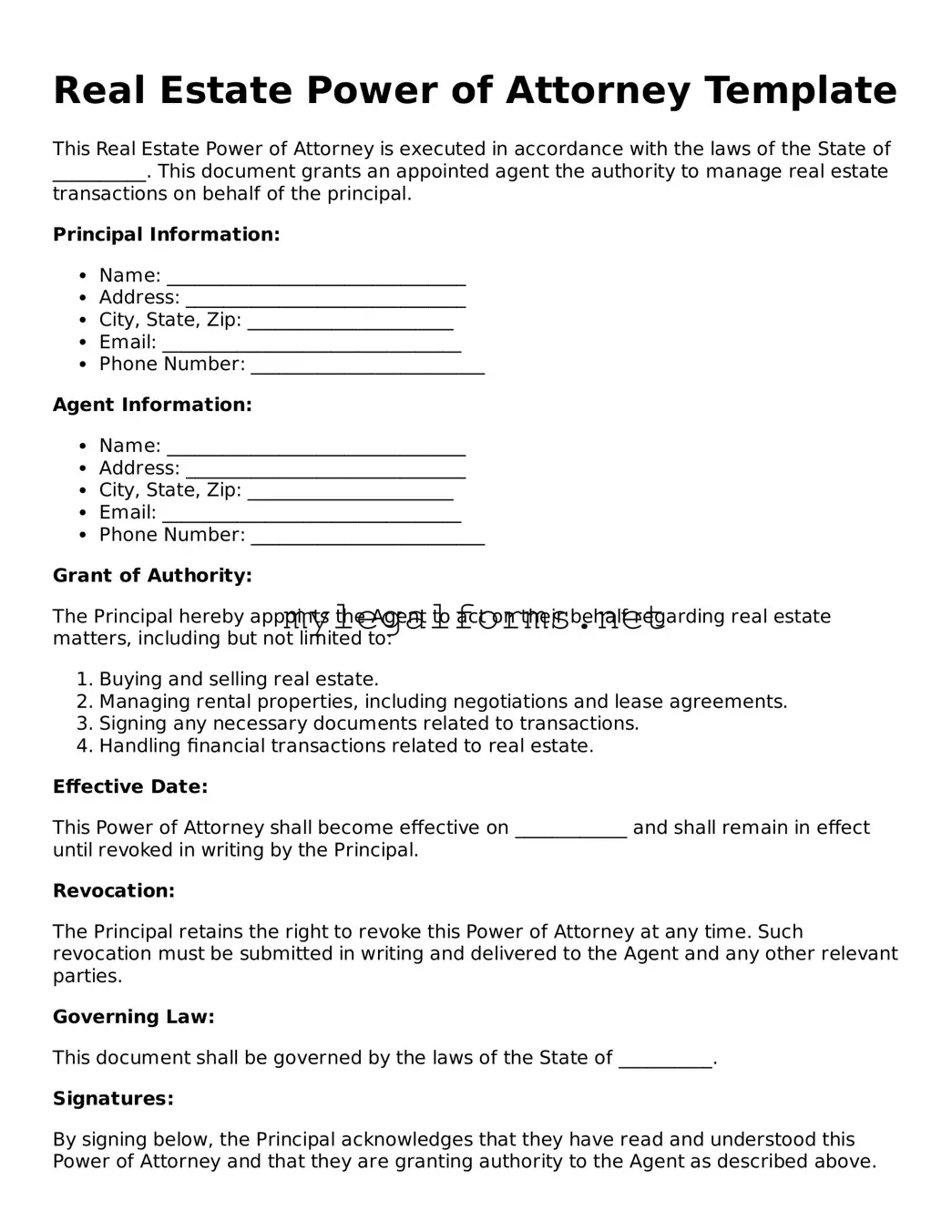Attorney-Approved Real Estate Power of Attorney Form
The Real Estate Power of Attorney form is a legal document that allows one person to authorize another to act on their behalf in real estate transactions. This form grants specific powers, such as buying, selling, or managing property. Understanding its implications is crucial for anyone involved in real estate dealings.
Launch Real Estate Power of Attorney Editor

Attorney-Approved Real Estate Power of Attorney Form
Launch Real Estate Power of Attorney Editor

Launch Real Estate Power of Attorney Editor
or
⇓ PDF Form
Complete the form at your pace — fast
Finish your Real Estate Power of Attorney online and download the final version.